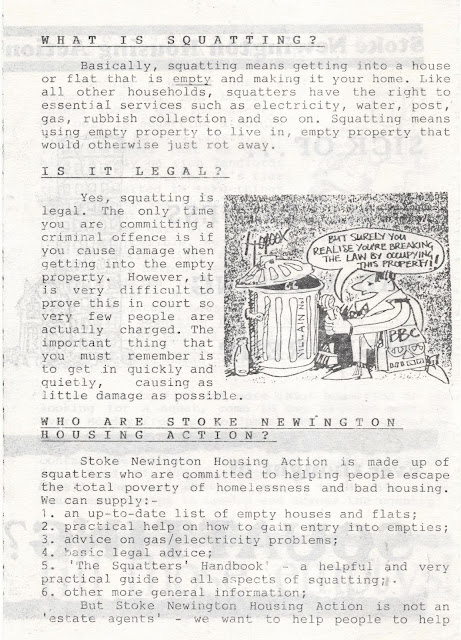As the House of Lords debates the issue today, Stuart Hodkinson looks at the real reasons behind the bid to criminalise squatting.
27 March 2012
It’s a curious move during the worst housing crisis in modern memory, to turn homeless people who shelter in empty homes into criminals looking at a year in prison or a £5000 fine. This from the government whose leader promised that austerity would not hurt “the vulnerable, the poorest in our society.”
The Conservatives who dominate this Coalition of millionaires present their war on squatting as a moral crusade to “protect the rights of regular hard-working homeowners” against a transient underclass hooked on drugs and alcohol bent on destroying their homes.
But this is all smoke and mirrors. While people who return from holiday to find a group of strangers occupying their home deserve our sympathy, it rarely happens if ever. When it does, The Law Society makes clear “the current law is sufficient to protect homeowners," a point endorsed by the Metropolitan Police and 160 leading legal experts in an open letter to the Government.
All London Squatters Meeting - 17 September 1989 (flyer)
Squatting is not a social crime – it tends to be a last resort response of homeless people to a systemic failure of housing provision made worse by more than 30 years of neoliberal policies intent on removing the hard won welfare gains of the post-war era. Probably no more than 2% of England’s scandalous 720,000 empty properties are affected.
The real purpose of criminalisation is the same motive that underpins the vicious class war policies that define this government: to defend and enhance private property rights over the human right to shelter.
Since coming to power in May 2010, the Coalition has set about rapidly dismantling what remains of the post-war housing safety net while boosting the property sector. Alongside the massive cuts to housing benefit, public funding for social housing has been slashed amid a new push to privatise what’s left of our precious public housing stock under a revived Right to Buy. Local authorities’ powers to bring empty homes back into use have also been watered down, protecting the companies who own most of them.
When combined with the wider austerity and welfare reform programme, these policies will inevitably create a new generation of mass homelessness and rough sleeping. It is no accident that official homeless numbers have jumped up 14% in the last year.
QLD Squatters Handbook
The costs of denying people the option of using homes abandoned by their owners will fall on housing authorities and homelessness services – and ultimately the taxpayer. A recent study by the squatters’ group, SQUASH, endorsed by legal practitioners and academics including myself found these costs could be as much as £790m in the first five years, over 30 times greater than the government’s estimate which failed to adequately quantify the squatting population or include the enormous housing and welfare costs of making squatters homeless.
Late 1990s
No wonder the proposed legislation has moved through Parliament at lightning speed, slipped it in [by Kenneth Clarke] at a late stage in the Commons with concerned Lords struggling to have it heard properly as they drown in the historic legislative onslaught of recent weeks.
"It is quite wrong that something that has been introduced so recently, and where a substantial number of people in a consultation—90% of them—were opposed to it, is being put through in this way," noted MP Kate Hoey. "We are abrogating our duty and our responsibilities as Members of Parliament if we allow this measure to go through..."
Yet this is how our laws are made today by a government that promised to get out of people’s lives but in reality is extending punitive state control over the most vulnerable in unprecedented ways.
To their credit, a number of Lords are attempting to have the issue considered diligently. Several reasonable amendments are on the table, including one to exclude buildings left empty for 12 months or more. This amendment has received support from Labour’s Shadow Justice Lord Bach, who in debate called the legal instrument being used to criminalise squatting a “ridiculous, silly clause."
Criminalising squatting is not about moral duty – if anything it’s a pre-emptive strike against the legions of dispossessed and repossessed heading our way. If this law, founded on almost total misinformation, is passed, it will mean more people on the streets and in prison while encouraging 100,000s of empty properties to remain empty. Now that’s criminal.
Stuart can be contacted at: s.n.hodkinson@leeds.ac.uk
Recommended
Related











No comments:
Post a Comment